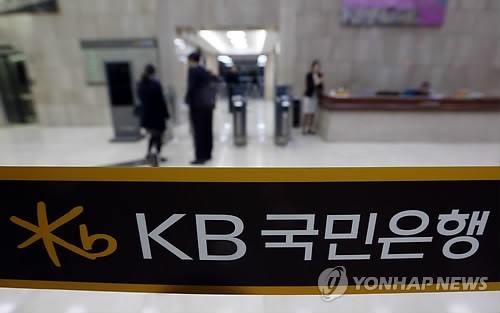 |
Kookmin bank (Yonhap News) |
Massive data on some 15 million bank clients have been leaked, industry sources said Sunday, raising concerns that reams of such leaked personal information could be used by a ring of financial scammers.
According to the sources, confidential data of customers ranging from minister-level officials to celebrities, including their phone numbers, addresses and banking records, have been illegally leaked and distributed from Kookmin Bank, Shinhan Bank and other several commercial banks.
The figure is roughly equivalent to 70 percent of the country's estimated 20 million credit card holders, they said.
The leakage came as the financial institutions shared customer information with local credit card firms -- KB Kookmin Card Co., NH Nonghyup Card Co. and Lotte Card Co. -- whose customers data were found to also have been leaked.
Early this month, a regional prosecutors' office in the southern city of Changwon pressed charges against three persons for illegal obtainment and distribution of confidential data from the card firms.
"All information on almost all economically active persons have been leaked," said an official at the Financial Supervisory Service, the country's financial watchdog. "We ordered local banks to probe the case."
The watchdog is pushing to reinforce related regulations by having financial firms further restrict access to client information depending on the staff's rank in the office, as well as to a third person from outside such as a subcontractor.
The need to beef up local banks' computer security and information protection has been consistently raised due to a series of computer data leaks and hacking attacks on online financial transactions since 2011, which could be used in financial scams.
Online and phone-based financial scams have been rampant in the country. The scam called SMishing, a combination of short message services (SMS) and phone fraud schemes known as phishing, uses text messages to lure people to access bogus websites with malignant codes and dupe them into revealing their bank or credit card information.
SMishing has become more prevalent in particular due to the wide use of smartphones. As of August last year, the country's smartphone users reached 36.32 million, accounting for 67.1 percent of the total mobile-phone subscriptions, industry data showed. (Yonhap News)








